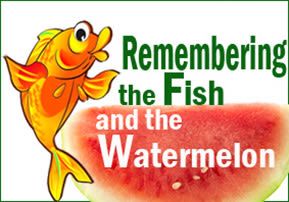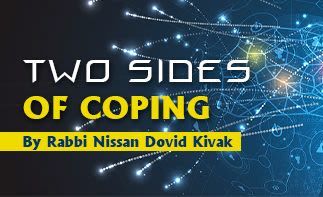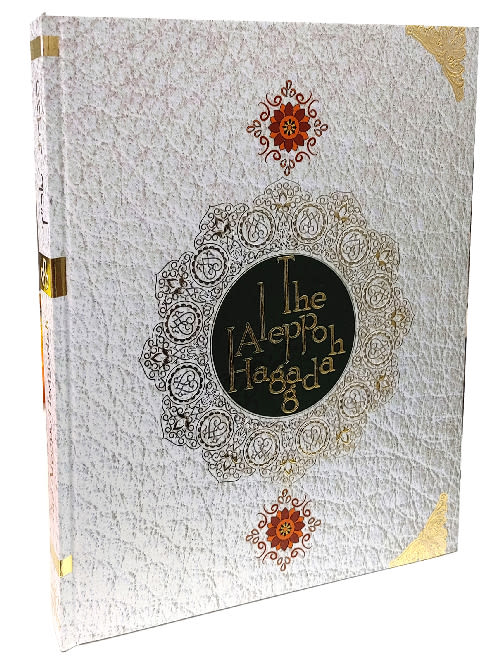
Remembering the Fish and the Watermelon
There is no reality of "bad"; one's outlook on a scale from good to bad depends on the level of one's emuna. The more the emuna, the happier...

We Remembered the Fish… and the Squash…
Harsh external conditions were not the bitter factor in the Israelites’ suffering in Egypt. Let’s examine for a moment the notion of hard work; is this alone a reason for despair? Many people work extremely hard from sunup until sundown, and yet they’re neither sad nor depressed. If the Children of Israel would have had complete emuna, that Hashem wanted them to toil as construction laborers for their ultimate benefit – both individual and collective – they’d have toiled willingly with no sorrow. One’s torture and bitterness in life is certainly the outcome of a lack of emuna – failing to recognize that everything is the result of Hashem’s precise Divine providence and all for the best. Without emuna, one cannot fully cope with a difficult situation.
The Torah provides additional evidence that Israel’s suffering was not the result of slavery and forced labor: After Israel was freed from bondage, they didn’t work at all. They ate the manna – the bread from Heaven – and were at leisure all day long to learn Torah and to get close to Hashem. Yet they still complained, and even expressed longing for Egypt! “The people became complainers…’We remember the fish that we ate in Egypt… the squash and the watermelon…'” (Bamidbar 11: 1-6). What happened all of a sudden? Amnesia? Did they forget about the back-breaking work in the hot sun?
From this passage we learn that the lack of emuna embittered Israel much more than slavery and hard work. As long as the Children of Israel lacked emuna, even after their redemption from bondage, they remained embittered. No matter what Hashem and Moses did for them, they complained. Even when Hashem was about to give them the most precious land on earth – the Land of Israel – they complained. What did they complain about? They were suspicious of a land that is capable of flowing with milk and honey, or whose fruit are oversized and too sweet. “Hey, something’s wrong here…,” they said to each other. Without emuna, a person complains about everything, including the best gifts in life.
As such, there is no reality of “bad”; one’s outlook on a scale from good to bad depends on the level of one’s emuna. The more the emuna, the happier and the more optimistic a person is. Unfortunately, the opposite is also true. Without emuna, life seems bad and pessimistic. Emuna – or the lack of it – determines a person’s mood and state of mind much more than external influences and circumstances.
The practical expression of emuna is when we’re satisfied with our lot in life. It doesn’t matter where we are or what we’re doing. When we believe that our present circumstance is the fruit of Hashem’s infinite Divine and personal providence and all for the best, we’re happy in whatever we’re doing, despite the hardships. Without emuna, a person isn’t happy even in a grand mansion with lush gardens, servants, swimming pool, tennis courts, two Lamborghinis and an unlimited bank account. Many are the rich and famous who lived (and still live!) lives of deep depression.
To Want What Hashem Wants
This explanation can also serve as an explanation for the entire Torah, namely, that transgression results from a lack of emuna. Every sin led to a free-fall into the darkness of concealment that necessitates even more effort in finding the lost emuna. This is a template for people’s setbacks and failures since the beginning of time.
Therefore, if you feel that you’re in a state of darkness, and emuna seems to be light years away, don’t lose heart! Just like the viceroy, as soon we renew the search for emuna – and never give up – this in itself rectifies the blemish of our misdeeds that caused the disappearance of emuna. Hashem wants us to strive for emuna, and we should want what Hashem wants. When we do, each of us will succeed in finding his or her own individual princess while correcting all the blemishes of our past, and everything will fall into place. With emuna, there’s always a happy ending.
‘We remember the fish that we ate in Egypt… the squash and the watermelon…’ (Bamidbar 11: 1-6). What happened all of a sudden? Amnesia? Did they forget about the back-breaking work in the hot sun?
To be continued.













Tell us what you think!
Thank you for your comment!
It will be published after approval by the Editor.